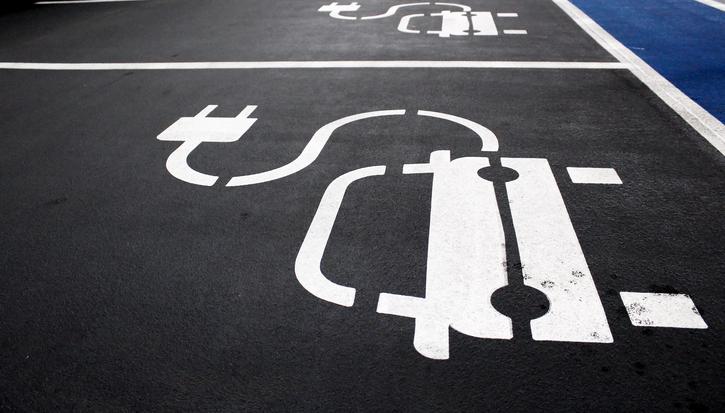Editorial: Patriotism and progressivism
Article
In her ground-breaking account of the forging of Britishness, Britons, Linda Colley describes how the disparate national loyalties that existed prior to 1707 were brought together under a single overarching identity - Britishness. The principle catalyst, she argues, didn't come from our own shores; instead, it came from across the English channel. For more than 100 years after the Acts of Union, it was war with Catholic France which provided the foundations for the modern British nation. 'Time and time again', writes Colley, 'war with France brought Britons, whether they hailed from Wales or Scotland or England, into confrontation with an obviously hostile Other and encouraged them to define themselves collectively against it.'
There is nothing particularly unusual about the British experience of the 18th and 19th century. Comparative accounts of nation-building demonstrate the centrality of an external 'Other' to the development and formation of national identity. Within Britain, it is England that has, for instance, provided a defining counterpoint for the development of contemporary Scottish and Welsh nationalism in recent decades.
But if self-definition against Otherness gives identities shape, then its absence only provokes confusion. This, perhaps, explains why the resurgence of Englishness in recent years is so difficult to comprehend. What, after all, is it a response to?
In this edition's lead essay, Michael Kenny seeks to address this thorny question by charting not just the (re)emergence of English national consciousness but also the competing accounts that make up Albion's nascent identity. Kenny points to the inherently plural nature of contemporary Englishness, tracing the development of different strands of English nationhood, which are themselves symptoms of deep-lying changes in the experiences and relative economic and social position of different groups: a conservative but tolerant account; a liberal, more urban and multicultural story, and a narrower strand with more explicitly nationalist undertones. While accepting that Euroscepticism, immigration (and to a lesser extent devolution) have undoubtedly served as stimuli for English self-awareness, he observes that in contrast to other forms of nationalism 'current forms of Englishness are less likely to be shaped by external cultural contrasts than by internal contrasts'. We tend to think of culture warfare as a hallmark of contemporary US politics, but Kenny's analysis raises the prospect of it becoming a growing part of our own politics.
If the political parties are to adequately respond to the new Englishness - as they must do - then they will have to understand better its fragmentary and febrile character. As a party which in power neglected the rising tide of Englishness, Labour in particular needs to think afresh about questions of nationhood and identity if it is to revive its electoral fortunes in those parts of England where it was wiped out in the 2010 general election. Ed Miliband's recent taking up of the 'One Nation' mantle provides a potentially powerful device for Labour to rebuild its reputation as a party that will speak for England.
But the extent to which Miliband is able to successfully develop his One Nation Labour project will depend on a lot more than his ability to accommodate the politics of Englishness, as important as that is. In this edition, Ben Jackson reflects on the historical pedigree of One Nation politics. He reminds us that while Miliband indulged in some clever political cross-dressing, by highlighting the idea's Tory precedents, there is a strong tradition of progressive leaders harnessing social patriotism to achieve political change. In his essay he chronicles how, in the hands of political leaders from Gladstone to Obama, powerful One Nation rhetoric has been used to link progressive goals to a sense of a national project.
The lesson is simple. It is those politicians who have successfully melded inclusive, patriotic oratory with substantive political projects who have really changed their countries. Gladstone, in the end, struggled to translate One Nation rhetoric into political action, because he was unable to unite the disparate forces that made up the Liberal party. As two of America's leading progressive thinkers and commentators, Elaine Kamarck and Robert Reich, discuss on these pages, the jury is still out on whether Obama can bring Americans together and overcome that nation's deep economic and cultural divisions. In contrast, Attlee and FDR stand out as major successes - their language spoke to their times (much as Miliband's does today) but crucially they attached to the rhetoric mould-breaking ideas and policies, such as the NHS and New Deal, which changed their world for the better. If Miliband is to stick to his One Nation project, he needs to follow in their footsteps.
Related items

The homes that children deserve: Housing policy to support families
As the government seeks to develop a new child poverty strategy, it will need to grapple with housing – the single largest cost faced by families.
Powering up public support for electric vehicles
Tackling greenhouse gas emissions will only work if public support for action remains strong. That means ensuring tangible improvements in people’s lives and heading off any brewing backlash.
Assessing the economy
Over the past few days and weeks, there has been lots of rather histrionic commentary about the UK’s economic situation as if the budget has created an economic disaster from which we’ll never recover.